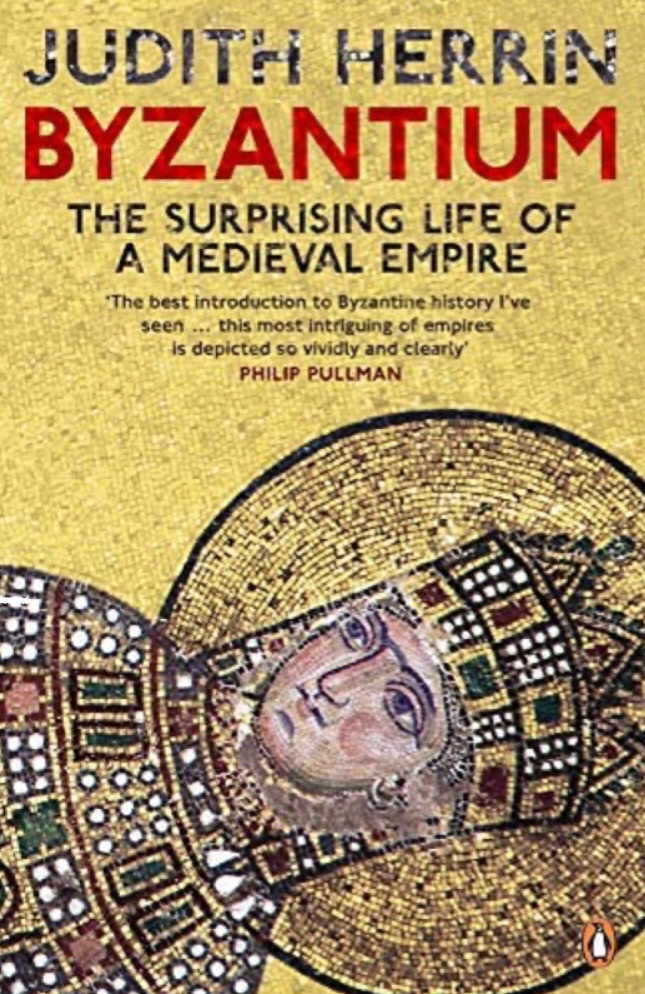

Judith Herrin’s Byzantium is an engaging read, which is exactly what I want in a popular history book.
She puts it well in her concluding statement when she summarises all the possible reasons why one might naturally be fascinated by the story of Byzantium – as a bulwark against Islam for nascent Western Europe, as the inheritor of Greek and Roman legacies, as the Eastern half of Christendom, or countless other things ranging from the creation of new alphabets to the use and roles of eunuchs – concluding that it’s not any one of these things, but the combination, what she calls “a rich ecology of traditions and resources”, that make for such a fascinating history.
She does seem to have a bee in her bonnet about the “systematic calumnies” perpetrated against Byzantium by the West, and she pinpoints the root of this as being the sack of Constantinople in 1204 during the Crusades. I was, personally, unaware of this allegedly jaundiced view, but I can quite easily see that she may well be right. Diarmid McCullough, in his History of Christianity makes a similar special plea for the re-evaluation of Eastern Christendom, so she’s certainly not alone in taking this position.
Byzantium is delightfully pleasurable straightforward reading on the whole (although I think a glossary would be a good addition), structured in easily digested bite-sized thematic chapters.
One minor irritation was the way the supernatural side of religion (Christianity in particular, naturally, given the subject of the book) was related as if factual (e.g. p 107, ‘Leo’s defence … intercession of the Virgin’, or p 103 ‘Sometimes the icons … powers.’ This last is immediately followed by a short section couched in two lights, first as if the supernatural were factual (‘Patriarch Sophronius … witnessed’ etc), and then in a more historical/rationalist vein; ‘individuals who believed themselves cured’ etc. I find this double-standard a little odd.
Herrin explicitly states in her intro that she’s deliberately emphasising the role of religious belief (and in particular her feel for the historical weight of Christian belief: ‘an intensely personal view’ founded in work done on her previous book The Formation Of Christendom) in a history where she feels ‘secular scholarship and popular appreciation’ may be in danger of forgetting or overlooking this.
I thoroughly enjoyed the book, yet there is a dissonance when religious experience (and by that I mean the supernatural aspects of religious belief) is couched in exactly the same terms as any other ‘fact’.
And indeed I was really struck by how little rational qualification of such ‘data’ there was, and how late it started putting in its rare appearances. So much so that when, roughly a third of the way through the book, on p101, she actually qualified a statement (‘Visions and … were alleged … icons.’), I felt like saying ‘at last!’
Quite what her exact personal position is, in religious terms, is then, potentially, an important and relevant issue to the proper understanding of the book.
